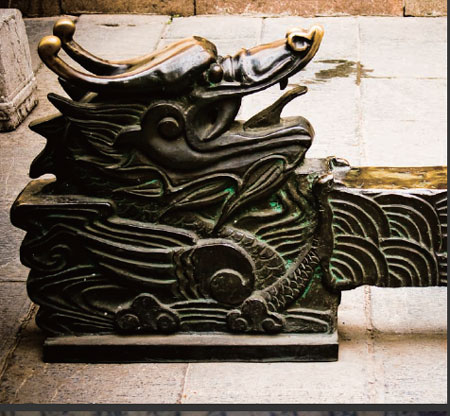Life on the Water's Edge: The Culture and History of the Qinhuai River
The Imperial Exams
When we see men of worth, we should think of equaling them; when we see men of a contrary character, we should turn inwards and examine ourselves. — The Analects
With a powerful legacy and probably the most unique aspect of Chinese culture is the imperial examination system. Laborious, daunting, sometimes antiquated — all accurate descriptions — was this revolutionary exam that set about creating an intellectual meritocracy that lasted for nearly 1,300 years. While the rest of the world was ruling through heredity and sometimes more brutal force, the imperial examinations were designed around the idea that the intelligent and educated, whomever they might be, would form the aristocracy. Through a standardized system of recognizing learned individuals, Imperial China awarded the best and brightest across the country to fill the civil service positions and serve in the imperial courts.
The concept, on face value, was relatively simple. Any male adult in China could attain a high-ranking government post upon passing the imperial examination.
Throughout the history of the examination there were a few women who did take the exam and "any", in some dynasties, did not include groups such as actors, slaves or merchants. Aside from this, the imperial examinations stood as an open pipeline for social aspirations through education. To be honest, taking the exam was costly as it required time to study and possibly tutors so most of the would-be scholars did come from families with means to support this endeavor. However, numerous examples show that throughout Chinese history many were able to move from the lower levels of society to elite circles of power by simply passing a test.
Going back to the Han Dynasty two millennia ago, then Emperor Wu developed an early form of examinations to choose from already appointed officials and the elite to serve in imperial capacities. As this process of examination developed and positions could be earned instead of being bought, loyalty to the government increased. With loyalty came increased integration of central ideas and formations of a stronger state. Quotas at each civil level helped to guarantee fair distribution of positions. By selecting from all of the country and by not permitting newly awarded officials to fill positions in their home province for more than three years abuse of power could be limited. The chance for one to rise out of an economically unfit situation and possibly serve all over, gaining insight and connections made the imperial examinations extremely attractive.
By focusing the content of the examination this also created an educated class, whether the exam was passed or not, that shared a basic understanding of what was expected at the higher level. A unity and consensus over a core set of values helped to strengthen cultural identity over a large kingdom with many individual ideas. With only a very small amount, less than 5 percent, passing the exams and receiving positions it did not deter people from taking the exam again and served to inspire others to rise to this new level of stature. While there were some that were devastated by failing the examination, a great number of educated men went on to fill positions and contribute to society through art, becoming teachers or serving in non-civil management roles.
This road to high office had several levels of examinations that needed to be completed however. First there were preliminary local exams that lead to provincial and finally palace level exams if one were to climb to the highest position. Exams were held every three years and required not only study but travel as well. For some obtaining a lower level civil post was adequate. Below the provincial level one could earn a small state salary, be officially viewed as a scholar and be exempt from both corporal punishment and certain taxes. To obtain a civil service post, a candidate had to pass through several stages, starting with preliminary local exams, and progressing, if successful, through to district, provincial and palace examinations. To reach the high level took great dedication and exceptional knowledge with only a few ascending to the palace level where one would have to impress the emperor himself with their examination.
The examination itself was an exercise in civil and philosophical matters. At its height the examination focused on the so-called "Five Studies", being civil law, taxation, military matters, geography and agriculture and a mastery of Confucian ideology. Studying, reciting and being able to comment on The Four Books and The Five Classics of Confucius was what separated ordinary men from scholars.
The form for an examination served as one of the first examples of standardized testing but was not a simple multiple choice or fill-in-the-blank process that are used today. The nine-day-long test required students to write what was called the "eight-legged essay". The highly formatted essay required students to answer questions in 700 characters or less and with many being republished as examples of scholarly aptitude and thinking. Following the formula of breaking open the topic, receiving the topic, beginning the discussion, initial leg, transition leg, middle leg, later leg and finally conclusion formed the basis for not only writing but much of the literature through the ages. Some educators have called this style too regimented and not allowing adequate discussion of any one idea but served to theoretically make awarding the student easier.
 0
0 








